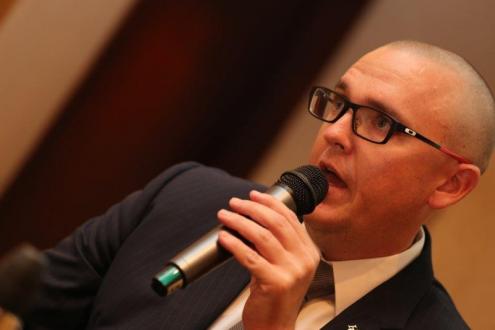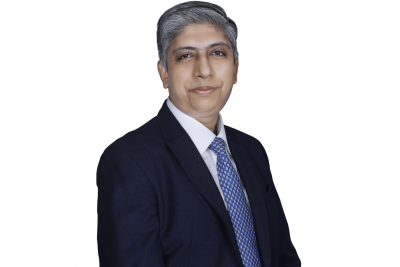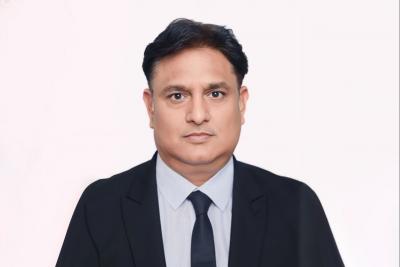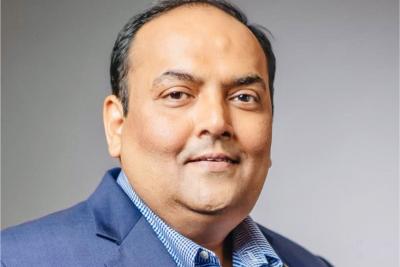Global Citizens, Global Residents: Trends and Developments in Investment Migration
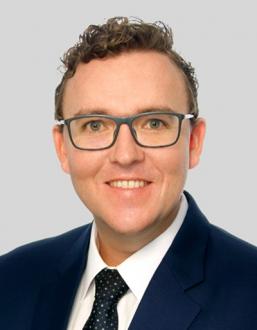
Dominic Volek of Henley & Partners
Sep 25, 2019
Dominic Volek, Managing Partner, Head Southeast Asia at investment migration consultancy Henley & Partners, along with Nirbhay Handa, Henley Director, presented a detailed and thought-provoking Workshop to delegates at the Hubbis India Wealth Management Forum in Mumbai. Their talk highlighted just how many viable alternatives there are for Indian HNWIs seeking alternative citizenship or residence options around the globe.
Volek began by introducing himself as MD of the firm and based in Asia, overseeing South and Southeast Asia, and Handa, he explained, leads Henley’s South Asia team, focusing primarily on India, Bangladesh, and Sri Lanka. He explained that Henley has pioneered the concept of residence and citizenship planning for more than two decades. Although a little-known concept when Henley began, investment migration has today become an integral part of wealth management and of the strategies put in place by forward-thinking families.
Global impetus
This global trend towards offshore residence and citizenship is currently in strong evidence in Asia due to the phenomenal rise in the number of HNWIs and UHNWIs in the wider Asia Pacific region, which last year set a new record of 6.2 million HNWIs worth USD21.6 trillion, according to Capgemini’s World Wealth Report 2018.
India, Volek highlighted, is seeing a rapid growth in private wealth and in turn in the investment migration market and has more wealth outflows than most countries. India, he said, has a HNWI population of around 350,000 today and a roughly 3,500-strong ultra-HNWI population worth at least USD50 million each. “A lot of you here today,” he noted, “will be advising these individuals and we work very closely with the wealth management community, including private banks, helping to advise those clients on the best citizenship and residence options available. So, we are ready and happy to talk with you, and of course we also work on sensible economic arrangements that make it worthwhile working with us.”
No dual nationality allowed
He reported that India does not allow dual citizenship, meaning that there is largely greater interest in alternative residencies. “First and foremost, for anyone holding an Indian passport, it can be difficult to travel due to the limited visa-free access that an Indian passport provides. Alternative residence in Europe as an example gives you greater mobility, it gives you travel freedom with visa free access to the Schengen area.”
Volek highlighted how the US has historically been the prime destination for Indian nationals seeking alternatives, with more than 4.5 million overseas Indians already living in the US.
He added that Australia is also the number one destination for any HNWI to move to currently. Looking more broadly, some of the key programmes Henley recommends for either residence- or citizenship-by-investment, include several countries in the Caribbean, EU countries such as Greece and Portugal (for residence) and Malta and Cyprus (for citizenship) as well as the latest, the Republic of Moldova, also in Europe but not currently in the EU.
More choice today
“Over the last 10 years the range of options on offer in Europe has risen from two or three countries offering these programmes to 20 or 30 of them today,” Volek told the audience. “Supply is, therefore, meeting demand. For example, aside from Moldova, Montenegro is due to launch its citizenship-by-investment programme in the coming months.”
Henley’s activities span the private practice, which focuses on the needs of high net worth (HNW) and ultra-HNW clients who seek secondary residence or citizenship through investment, as well as a government advisory practice, where Henley works with countries to design, implement and promote their investment migration programmes.
Volek explained that Henley has built both a global presence and unparalleled expertise advising HNWIs and the ultra-rich on obtaining either citizenship-by-investment or residence-by-investment. “Anyone in Asia considering this route needs the best professional advice and for that Henley is the proven expert for more than 20 years now,” he reported. “We are pioneers and leaders in this sector, with a worldwide staff of over 300 across 32 offices, and with more than 60 of our people here in Asia.”
Take your pick…
Residence-by-investment (RBI) is a less complex option, whereas citizenship-by-investment (CBI) is, understandably, the more demanding and expensive option. CBI programmes confer on the successful individual, and their families, the same rights as ordinary citizens of those countries; the solution is permanent and includes voting rights and passports and typically no physical presence requirements. The great advantage of CBI is that it bypasses the traditional route of an HNWI and the entire family relocating to another country in order to earn citizenship.
On the private client side, Volek explained that there are various reasons why private clients come to Henley. “We might, for example, have a family from a troubled country that is seeking second citizenship, literally as a lifeline against political or economic uncertainty.” A similar motivation is having a ‘Plan B’, which is effectively an insurance policy in the event that someone’s home country becomes unstable, where there is sovereign risk, political or economic uncertainty, or any other major problem one might encounter.
Many reasons
“Having an alternative residence or even citizenship offers a secure alternative in the face of these types of risks, not just for the individual but for their whole family as well as future generations,” Volek observed.
At the other extreme are very wealthy clients in a stable country in Asia that see a second passport as a status symbol. “To hold a European passport these days and especially one that offers unlimited access to the EU and the US, is rather like owning a supercar or a yacht,” Volek commented.
And in the middle ground, and this is where the majority of the Henley clients are nowadays, the motivation is primarily for travel freedom. “If you are born in a country like India, the Philippines, Bangladesh or China, from a travel perspective your passport is very restrictive, and this impacts your ability to do business and to access global opportunities,” Volek explained.
Volek also pointed to retirement. “In a place like Mumbai the property prices are peaking high,” he noted, “but in Greece you can buy a beautiful apartment, and you can also get a permanent residency for EUR250,000, with all the associated travel benefits including access to EU’s Schengen Area.”
Time-efficient
Volek also noted the typical private client is cash-rich but time-poor. He said most clients do not actually move to the new country, even if they obtained alternative citizenship, and that generally their motives are driven by additional freedom and flexibility. Frequently, Volek explained, clients do not even need to reside in their chosen jurisdiction; as long as they can pass the various anti-money laundering and strict due diligence checks, invest the required sums and pay the necessary fees, they can become citizens of those countries and obtain a second or alternative passport and all the benefits that it brings.
Working directly with governments
Handa took the floor and explained that aside from the private practice, the other element of Henley’s business is government advisory, where the firm strategically advises governments on the design, set-up and implementation of their various programmes. To date, Handa noted, the company has helped governments raise more than USD8 billion in foreign direct investment in a number of countries, including Antigua and Barbuda, Malta, St. Kitts and Nevis, Thailand and most recently the Republic of Moldova.
Handa highlighted some government advisory milestones, dating back to 2000 when the firm began working with St. Kitts and Nevis, which boasts the oldest programme in the world, available since 1984. “The programme had been relatively dormant for many years until our government advisory team helped them to restructure to a model which since then the whole of the Caribbean has followed.”
And he also pointed to Henley’s work with the UK on its Tier 1 investor visa and more recently, Antigua and Barbuda in the Caribbean and Malta, which today offers one of the most exclusive CBI programmes in the world. And he reported that Henley is currently working with the Thai Government on the Thailand Elite programme, as well as with Moldova on its CBI programme.
Every year the firm releases its Henley Passport Index, which ranks a citizen’s passport according to the number of countries that the holder has visa-free or visa-on-arrival access to. The Singapore passport offers visa-free access to 189 countries, so it is a great passport to hold and to travel with. But the Indian passport only offers access to 58 countries visa-free.
Citizenship alternatives – Caribbean
Handa then launched into more detail on the programmes on offer. In the Caribbean, the main focus is really on the travel freedom, with five countries offering CBI programmes, namely Antigua and Barbuda, St. Kitts and Nevis, Grenada, Dominica and St. Lucia.
The Caribbean model is typically one whereby the applicant has the option to either donate to a government fund or invest into real estate which then they can hold for three to seven years depending on which country they choose. The costs will range anywhere from USD100,000 to about USD300,000 in terms of the investment amount required.
The main applicant and his or her spouse can be included as well as children below 18 years old, while dependent adult children can also be included up to specific ages, as well as dependent parents of the main applicant and their spouse.
As to processing time from the date of submission of the application, this takes between three and six months. In the Caribbean, Henley clients can obtain outstanding passports from British Commonwealth countries, offering easy access to Europe, the UK, Singapore, Hong Kong, and so forth. Grenada is unique in that it is one of only about 15 countries in the world that has visa-free access to China, which is of considerable value for anyone seeking closer business ties with China.
As to the types of investments associated with such programmes, these are very often high-grade assets. Henley clients are typically investing into branded five-star resorts, or hotels, getting a title deed on a unit or several units that are part of the resort, which are managed by a renowned, brand-name operator, implying that this is generally a reputable, hassle-free investment.
And the flexibility of these Caribbean programmes means the clients do not even need to visit the island, except in the case of Antigua and Barbuda where once they obtain their citizenship, clients need to visit the island for just five days during the first five years.
Citizenship alternatives – Europe
Focusing then on Europe, Handa highlighted some key opportunities, noting that over the last 10 years the range of options on offer for either citizenship or residence has risen from two or three countries doing these programmes to more than 20 today.
For EU citizenship, besides Malta and Cyprus, Austria offers what is perhaps the ‘Rolls Royce’ of programmes, but it comes at a hefty price. “Austria does not have an actual CBI programme,” Handa reported, “but if an individual significantly contributes economically to the country they can be granted citizenship, and that means starting with a donation of at least EUR3 million or investment of EUR8 million.”
Malta
Malta is another good example, benefitting from significant uplift in its revenues through its Malta Individual Investor Programme (MIIP). Malta is a member of the EU and with a population of just more than 400,000 residents offers a passport with visa-free travel to 182 countries, including the US.
The MIIP was launched in 2014 and requires a donation of EUR650,000 to the government for the main applicant, plus EUR25,000 for their spouse, as well as EUR25,000 for each applicant under 18 years old.
The applicant must also buy a property in Malta at a value of at least EUR350,000 or rent a property for at least EUR16,000 per year and must invest in a Maltese financial instrument of at least EUR150,000 and leave that money in for at least five years. And the applicants must hold private health insurance. The all-in cost for Malta will thus typically range between EUR900,000 to EUR1.2 million depending on the size of the family and the processing time to actually get the passport takes about 16 to 18 months, including a mandatory 12-month residence period, although that does not mean the applicant needs to be physically residing in Malta.
“At the first stage of the process,” Handa told delegates, “which is quite quick, we submit the residency application, which is granted usually within a week or two. They then need to just hold that card for 12 months before the citizenship is approved. The resident card actually is very useful to our Indian clients as it offers free movement to any Schengen country without having to get a visa. Upon citizenship, you will then hold a European passport.”
Cyprus
He also focused on Cyprus, which along with Malta is the current ‘go-to’ programme in the EU. Cyprus requires an investment of EUR2 million, usually into real estate which must be held for five years. The applicant will also have to donate EUR75,000 to the Institution of Research and Innovation as well as another EUR75,000 to the Cyprus Land Development Organisation.
Cyprus also offers the opportunity for individuals to achieve tax residence through only spending 60 days per year in the country itself. It offers a 12.5% corporate tax rate and no inheritance or gift tax and is one of the most attractive tax- jurisdictions in Europe. A further appeal of Cyprus is a new casino-resort development, City of Dreams Mediterranean, which will be Europe’s largest casino, due to open in 2021, owned and operated by the Macau-based owner of City of Dreams as principal.
Moldova enters the scene
Meanwhile, as Volek had alluded to earlier, the latest entrant in Europe is the recently introduced Moldova CBI programme. Although not currently an EU member state, the programme is extremely cost-competitive with the Caribbean examples and provides similar visa-free access to the Schengen area as well as Russia and Turkey.
Moldova offers visa-free travel to 119 countries and is also a Commonwealth of Independent State country. This means that Moldovan citizens can go to Russia, Ukraine and Belarus without a visa. The citizenship programme processing is highly efficient in just 90-days and requires a donation of EUR100,000, plus extra for dependents up to a total of EUR155,000 for a family of five or more. There is also a government service fee of EUR35,000 per application.
Residency schemes
Handa then turned his attention to the RBI schemes, noting that a lot of families in India are not sure if they want to give up their Indian citizenship –dual nationality is not permitted - because they have a lot of ties there. “So, for them getting a residency is a natural route and if you get that in Europe, it still allows them to travel anywhere in the Schengen Area. With an Indian passport you can only travel to 58 countries, but with a Portuguese residence you can travel to another 26 countries in the Schengen Area, which means you can travel to more than 84 places globally without the need of a prior visa.”
He explained that RBI generally involves investing into a country, obtaining a residence visa for generally four to five years, and if the client spends enough time there, keeps their investment, learns the local language, they may often qualify to apply for citizenship later. “The main drivers here are education and lifestyle,” he added, “so this route is really more about physically uprooting and moving to another country to enjoy these benefits.”
Canada and the US less viable today
As to alternatives, Canada has fallen off the perch. While immensely sought after even today, Canada’s only option nowadays is via Quebec and requires a CAN$1.2 million zero-interest loan to the government for five years to obtain permanent residence. And for the US, a green card requires USD500,000 into a regional centre that creates 10 jobs though this figure is set to increase to USD900,000 come November under revised regulations.
UK’s deep appeal
The UK Tier 1 investor visa is still very popular particularly with Henley clients, especially from India. Instead of sending the children to the UK on a Tier 4 student visa, which when they finish studying ends their legal right to remain in the UK, Henley recommends doing it under the Tier 1 investor visa. In that case, when the children finish their studies, they can become UK permanent residents which is known as ‘indefinite leave to remain’ in the UK. And if they end up spending enough time in the UK, they can also become citizens after six years.
The UK historically has had a lot of interest from Indian families. “If you are wealthy and if you don’t have a house in London it is a bit of an odd thing at one point in India,” Handa remarked. “And with the regulations becoming stricter and the threshold becoming higher for the US, we are really seeing the Indian market getting educated on what are the other residency programmes that exist apart from the US.”
Greece and Portugal beckon
He noted, therefore, that the other two very popular RBI options in Europe are Portugal and Greece. Portugal requires a real estate investment of a minimum of EUR350,000 while Greece requires an investment of just EUR250,000, resulting in permanent residence granted in two to three months. Both are in the EU and also in the Schengen zone.
“Greece is wonderful,” Handa remarked, “and as Dominic said earlier, for just EUR250,000 you can get a property which is very pleasant, by the most beautiful sea in the world, and additionally, it gives you free access to public healthcare and education. “We have certainly had a lot of interest from families in India who are keen to get a Greek residency.”
Handa reported that Portugal has also enjoyed great interest in the Indian market. “Portugal requires a minimum of EUR350,000 invested into real estate for residence, and you effectively need to spend only seven days every year in Portugal,” he explained. “And after the fifth year you are also eligible to apply for citizenship.”
Asia’s doors are open
And in Asia, there are programmes such as Thailand Elite. “Henley is the official concessionaire for the Thai government since two and half years ago,” Handa noted, “and as it is welcoming and geographically easy to reach, its residency programme has garnered a lot of interest in India. It offers one of the most price competitive residency programmes in the market right now, from as low as USD16,000 for five years, or USD32,000 for a 20-year visa.”
Singapore has had a lot of interest from families in India because of its proximity to India, being only a few hours away by plane, Handa also added. However, while Singapore has become increasingly popular, it is also ever tougher as a residence or citizenship option.
For the Singapore Global Investor Programme (GIP), the individual must prove himself as an entrepreneur, showing a good track record for the past three years. The applicant must own at least 30% of a company, which must have a turnover of at least SGD50 million in the most recent year, and an average of SGD50 million for the past three years. If so, the individual can then invest at least SGD2.5 million to set up or expand an existing business in Singapore in order to gain permanent residence.
Moreover, the Singapore Economic Development Board (EDB) scrutinises the applicant’s background and the business also needs to be in an industry that the Singapore government prioritises, such as technology, fintech or medical-related, all of which are in demand. And, for later renewal, the business must hit certain milestones at the three- and five-year marks.
Singapore also offers appealing family office incentives, but this is for the ultra-wealthy, as it requires the main applicant to have a personal or direct net worth of SGD400 million and then to invest SGD2.5 million into establishing a single-family office in Singapore. The family office must then have SGD200 million of assets under management in Singapore in order to acquire permanent residence.
A much more economically appealing option is Malaysia. “There has been significant interest for Indian families acquiring residency in Malaysia,” Handa reported, “and for the second home option it offers a 10-year residency and it is very straightforward. You only need to deposit USD75,000 in a fixed deposit, or half of that amount if you are 50 years old or older.”
Finally, there are the jewels of Australia and New Zealand, which remain very popular. “Australia is still the number one destination for HNWIs to move to,” Volek remarked, “with investments required from AUD1.5 to AUD5 million. If the applicant invests only AUD1.5 million they must physically spend two out of four years there to become a permanent resident, but if you have the money and you don’t have the time then you can invest AUD5 million, and you only have to spend 40 days a year there to get permanent residence after four years.”
For New Zealand, the programme is similar, with a range of between NZD3 million requiring you to spend more time, and NZD10 million with less time in-country required.
Working with wealth managers
Handa closed the fascinating Workshop by noting that a considerable portion of the Henley private client business is generated through relationships with private banks, independent asset managers, family offices, law firms and other advisory businesses.
“We like to build and expand our relationships with the wealth management community,” Handa explained. “We have a 60-plus team in Asia and a fully global presence, so if you have clients that are interested, feel free to introduce us to them, and we can work professionally and responsibly together to educate the clients and your teams with the objective of taking your clients through to realising their end-goals.”

Group Head of Private Clients at Henley & Partners
More from Dominic Volek, Henley & Partners
Wealth Solutions & Wealth Planning
Preserving Intergenerational Wealth: Views from Investment Migration Expert Dominic Volek
Wealth Solutions & Wealth Planning
Investment Migration and Building Optionality in a Complex and Challenging World
Wealth Solutions & Wealth Planning
Protect Your Wealth via Residence by Investment in Investor Friendly Jurisdictions
Wealth Solutions & Wealth Planning
Henley & Partners’ Group Head of Private Clients Surveys the Current World of Investment Migration
Latest Articles


